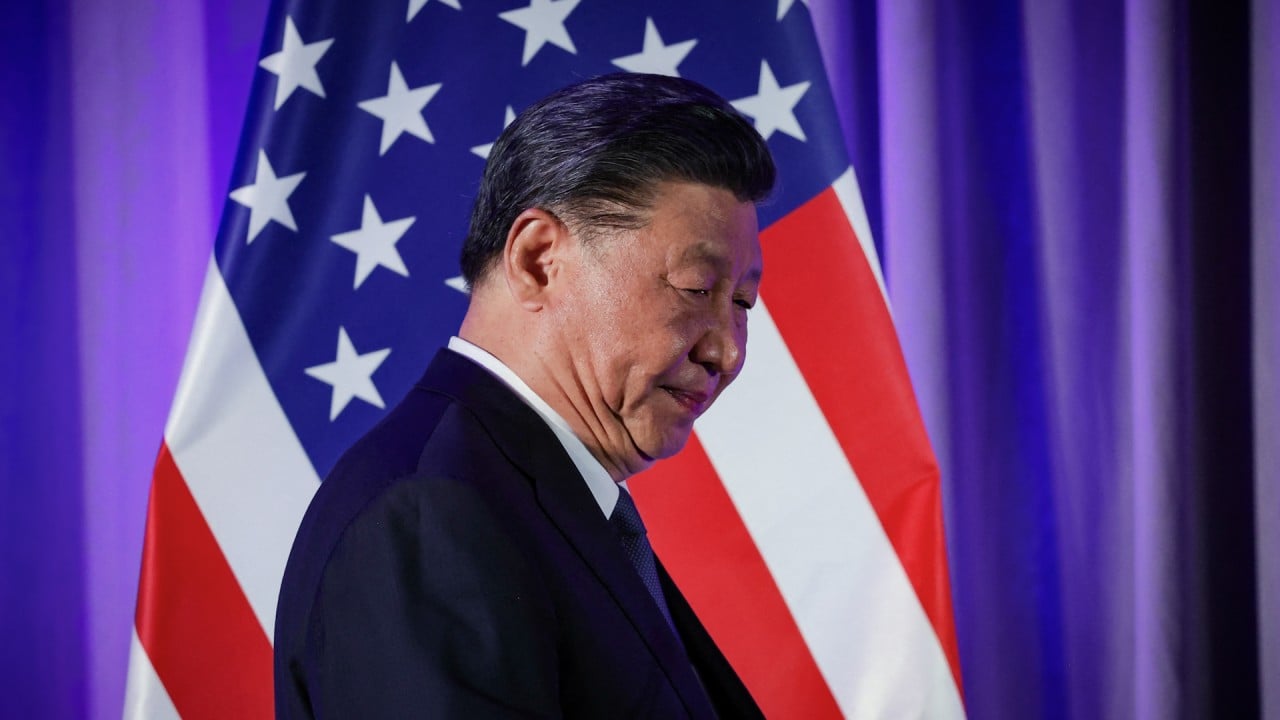
China’s Xi Jinping pledges to tear down foreign investment barriers, entice capital with ‘heart-warming’ measures
- President Xi Jinping told the Asia-Pacific Economic Cooperation CEO Summit in San Francisco on Thursday that China would ‘strive to tear down barriers’
- China recorded a foreign investment deficit of US$11.8 billion in the third quarter, the first deficit since the data started in 1998
President Xi Jinping pledged more measures would be unveiled to attract foreign investors to China, amid Beijing’s increasing efforts to restore the ebbing confidence of foreign companies, which has hampered its post-pandemic recovery.
“No matter how the international situation evolves, China’s resolve to foster a market-oriented, law-based and world-class business environment will not change,” Xi said in written remarks to the Asia-Pacific Economic Cooperation (Apec) CEO Summit in San Francisco on Thursday.
“And our policy of providing equal and quality services to foreign investors will not change.
“We will strive to tear down the barriers to the flow of innovation factors, deepen reform of the digital economy, and promote free and orderly flow of data in compliance with the law.”
China remains the most powerful engine of global growth
He added that China would implement more “heart-warming” measures, such as improving the policies on entry and retention of foreign nationals in China, and removing choke points in financial, medical, e-payment and other services.
He also vowed to improve the protection of foreign investors’ rights and interests, further shorten the negative list on foreign investment, fully ensure equal treatment for foreign investors and continue to strengthen intellectual property rights protection.
He also played up China’s economic recovery, saying “solid gains have been made in our pursuit of high-quality development. China remains the most powerful engine of global growth. Just as some leaders of the business community have said, China has become a synonym of the best investment destination, and that the ‘next China’ is still China”.
It marked the first quarterly deficit since the State Administration of Foreign Exchange began collecting such data in 1998.
From January to October, the number of newly established foreign-invested enterprises in China reached 41,947, marking a year-on-year increase of 32.1 per cent, according to the Ministry of Commerce.
However, the actual foreign capital used in the same period amounted to 987.01 billion yuan (US$136 billion), showing a year-on-year decrease of 9.4 per cent.
It is quite difficult and not optimistic for foreign investment to return to the average level of the past decade
On the sidelines of the Apec summit, trade and economic officials of China’s major trading partners also raised concerns about operating in the world’s second-largest economy.
The plunge in foreign investment has been driven by both structural factors, as well as short term challenges, Wang Tao, chief China economist at UBS Investment Bank, said last week.
As China’s economy struggles to recover, foreign investors are weighing reduced profits against the risks of an uncertain political climate, diversification and decoupling pressure, as well as rising labour costs in China, she said.
“It is quite difficult and not optimistic for foreign investment to return to the average level of the past decade. Achieving half of the levels seen in the past decade would be considered quite good,” she said.
To ease concerns, the Ministry of Commerce said it has also been investigating restrictions that may discriminate against foreign-funded enterprises.
“The purpose is to create a more equitable market competition environment for foreign-funded companies, stabilise the expectations and confidence of foreign investors in long-term investments in China, actively and effectively utilise foreign capital, and contribute to the establishment of a new development paradigm,” the ministry said on Thursday.
The National Development and Reform Commission also vowed to provide a freer and more convenient environment for foreign companies and investors in China with fairer treatment.


